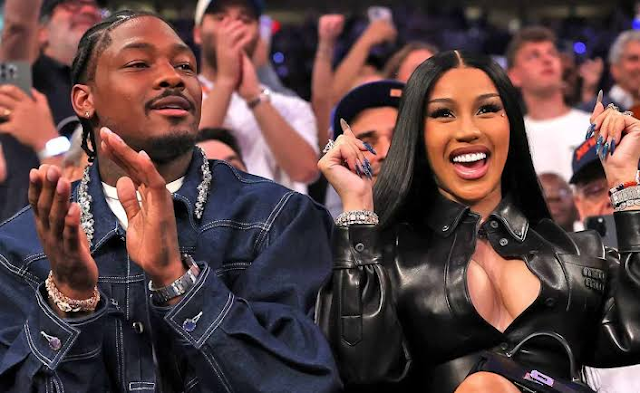1. Overview & Hook: The Trial by Fire
The Nigerian cinematic landscape, fondly known as Nollywood, has always excelled at capturing high-stakes domestic and relational drama. “TWO BRIDES WAITING” is no exception, but it elevates the classic “unwelcome girlfriend” trope into a theatrical, almost ritualistic battle for male affection and maternal approval. This isn’t just a love triangle; it’s a brutal trial by fire where a modern woman’s worth is weighed against the archaic scales of tradition.
The film’s logline could read: When a successful young man brings his independent girlfriend home, he unwittingly traps her in a vicious social competition orchestrated by his controlling mother, who has already selected a ‘suitable’ rival.
The movie operates squarely in the Domestic Drama genre, spiced heavily with elements of Social Commentary and a touch of the theatrical. Its primary audience is, naturally, the Nigerian diaspora and global fans of Nollywood content who are familiar with, and often frustrated by, the intense family pressure placed on young couples. The drama is thick, the stakes are high, and the conflict—driven by the formidable mother—is relentless. From the moment Anyama steps across the threshold, we know she isn’t home; she’s entered a gauntlet.
2. The Thematic Battleground of Tradition
The film’s true strength lies in its unflinching portrayal of the societal fault lines running through contemporary Nigerian dating and marriage culture. It uses the domestic setting as a laboratory to test how far traditional expectations can be pushed before they violently snap.
The Queen Mother Archetype: Gatekeeping for Posterity
The character of Chitty’s mother is the undisputed gravitational center of the conflict. She is the ultimate gatekeeper mother-in-law, but her portrayal is intentionally over-the-top, lending a theatrical flair that pushes her past a mere stereotype into a caricature of societal control. She views her son, Chitty, as a ‘masterpiece’—a prince deserving only of a fair maiden, and she assumes the absolute right to veto any applicant who doesn’t fit her meticulous checklist.
The mother’s contempt for Anyama is palpable and immediate, fueled by classism and a rigid, almost fanatical, interpretation of faith (as seen in the bizarre biblical quiz that opens the rivalry). She finds Anyama to be a ‘mistake of a random child birth’ [01:36:55]—a line that chillingly grounds her disapproval in socio-economic prejudice. She doesn’t just want a good wife for her son; she wants an obedient replica of the traditional ideal, someone who can be controlled and who shares her background (implied to be highly educated and socially elevated, given her preference for Dubame, the corporate law student).
Wifely Exams: Sewing, Baking, and Brawling
The “challenges” are the structural core of the film, and they are fascinating cultural artifacts within the narrative.
The Sewing Challenge (The Test of Domestic Submission): Anyama is tasked with fixing buttons on four shirts, symbolizing the four children Chitty intends to have [01:11:14]. This is a direct test of traditional domesticity, implying a wife must have the fundamental, self-sufficient skills of home maintenance, regardless of her professional success. Anyama’s success, using the zigzag stitch, shows she has hidden depths, but the mother’s response is to immediately raise the bar—she expects preparedness for financial ruin and the ability to act as a spiritual leader [01:17:46]. The test is not about capability; it’s about establishing submission.
The Baking Challenge (The Test of Due Diligence): The request to bake a cake ostensibly tests cooking skill, but it quickly descends into a test of diligence and character when Dubame, the favored rival, intentionally switches the sugar with salt. Anyama fails, but the true failure highlighted by the mother is Anyama’s ‘lack of due diligence’ [01:28:54]—the inability to guard her corner and anticipate treachery. In the mother’s world, a wife must be savvy and vigilant, not just domestically skilled.
The Physical Challenge (The Test of Self-Defense): This is the most jarring and controversial test. The mother, citing Dubame’s martial arts training from Clar’s Girls, incites a brawl [01:30:13]. This scene violently shatters the domestic veneer and underscores the mother’s true goal: to establish clear physical and mental superiority in the chosen candidate. When Anyama refuses to fight back and is hurt, the mother views her as weak and unsuitable.
The film comments on these tests by showing their ultimate futility. Anyama passes the domestic test but fails the manipulative and physical ones, prompting her realization that the fight is not for love, but for survival against unreasonable standards.
Modern Nigerian Womanhood: Anyama vs. Dubame
The conflict is a powerful allegory for the two dominant
relationship ideals in Nigeria today:
|
Ideal |
Anyama |
Dubame |
|
Identity |
Fashion Entrepreneur (Independent) |
Corporate Law Student (Ambitious, Traditionalist) |
|
Relationship Style |
Passionate, Open, Assertive (‘This is the real me’) |
Measured, Obedient to the Mother, Covertly Manipulative |
|
Presentation |
Modern, ‘Sexy,’ Focused on the relationship |
Meticulous, Scriptural, Focused on family merger |
Anyama’s independence and willingness to dress “sexy and good” [01:34:49] is what the mother judges most harshly. Dubame, meanwhile, weaponizes her education, traditional knowledge (reciting John 3:16), and domestic skills, proving that one can be highly educated and adhere to outdated patriarchal standards to win favor. The film suggests that, in the eyes of the older generation, the ‘traditional’ package—even if acquired via manipulation—still trumps genuine modern connection.
3. Character & Performance Deep Dive
The performances are the engine of this high-octane drama, even when the script veers toward the extreme.
Chitty: The Problematic Prince
Chitty, the man at the center of the storm, is perhaps the film’s most frustrating and complex character. He is initially painted as the “Problematic Prince”—spoiled, wealthy, and deeply passive. His initial strategy is simply to avoid conflict by letting his mother’s ‘house, her rules’ prevail [01:11:08]. He seems genuinely oblivious to the severity of the mental and emotional abuse Anyama is enduring, only intervening when she is physically injured and ready to leave [01:31:16].
However, Chitty’s final decision is the character’s necessary emotional turning point. When he returns for Anyama, he finally stands up to his mother, delivering the movie’s most crucial dialogue: “There’s only one you, you are irreplaceable. No one can take your place. Mom, do you know how many times I’ve seen her dressing like a prostitute? Yes, she dresses good, sexy, and I like it. But that’s not all she’s about.” [01:34:39]. His agency, though delayed, is powerful because it rejects the mother’s impossible demand that his wife must be a younger, more compliant version of herself. It validates Anyama and saves the relationship.
The Performances that Sell the Drama
The actress playing the Mother delivers a performance of icy, focused malice that defines the film’s tension. Every word, every subtle physical gesture (like placing the four shirts down), oozes conviction, making her a genuinely terrifying figure of authority.
The actress playing Anyama carries the film’s emotional weight, successfully transitioning from initial defiance (“I don’t mind fighting for him” [01:03:15]) to exhaustion and self-respect (“I can’t keep fighting for a man’s attention” [01:33:16]). Her vulnerability in the face of the mother’s cruel judgment is what draws the audience in.
4. Directing the Drama: Technical and Pacing
Pacing and Runtime Bloat
At nearly two hours, “TWO BRIDES WAITING” occasionally suffers from the classic Nollywood tendency toward extended dramatic pauses and scenes that linger longer than necessary. The pacing slows down significantly during the initial meal scene and some of the domestic conversations. However, the film is consistently rescued by the sharp, unexpected turns of the plot (the salt-sugar switch, the fight) and the sheer intensity of the confrontations. The runtime is ultimately justified because the director takes the time to establish the absolute authority of the mother, ensuring the stakes feel high before each test.
The Power of Pidgin and Punchlines
The dialogue is a masterclass in code-switching, leveraging the cultural rhythm of both formal English and Nigerian Pidgin. The formal exchanges between the mother and Dubame establish their high-society status, while Anyama’s frequent use of Pidgin in private calls or exasperated moments with the maid is used to instantly communicate her authenticity and relatable, grounded frustration.
A line that perfectly encapsulates the film’s central cultural critique comes from Dubame, educating Anyama on wifely duties: “Marriage is more than just a contract between two people. It is a merger between two families.” [01:26:00]. This single statement articulates the transactional, family-driven view of marriage that Anyama’s individualistic love story is fighting against.
Direction: Managing the Chaos
The director’s key success lies in balancing the realism of the domestic setting with the almost unbelievable cruelty of the mother. The confrontations are staged well, culminating in the shocking physical fight scene, which is intentionally messy and horrifying. The use of close-ups during the mother’s judgment amplifies the emotional impact, forcing the audience to bear witness to the psychological warfare. The final sequence, where Chitty defends Anyama, is carefully directed to provide the emotional release the audience has been waiting for, ensuring a satisfying—if highly dramatic—conclusion.
5. Conclusion & Rating
“TWO BRIDES WAITING” is more than just a dramatic time-filler; it’s a necessary, albeit exaggerated, cultural audit. It forces viewers to confront the deeply ingrained prejudices and outdated expectations that modern Nigerian women still face when attempting to join a new family. The film excels at creating a villainess who is both terrifying and tragically rooted in her own traditional worldview, and it provides a cathartic (if slightly delayed) moment of male validation that many in the audience yearn for.
While the film is occasionally melodramatic and the passivity of the male lead tests the audience’s patience, its cultural relevance and the powerhouse performance of the mother figure make it a compelling watch. It’s a reflection of the toxic power struggle between tradition and individualism in romance today.
Verdict: This movie is a must-watch for fans of high-stakes Nollywood drama and anyone interested in the friction between modernity and tradition in African romance narratives.
Rating: 4.0/5.0 Stars. The film successfully transforms a common trope into a fierce examination of family interference and the price of self-respect.
Call-to-Watch
If you’ve ever felt the pressure of a judgmental family or had your worth questioned by an in-law, stream “TWO BRIDES WAITING” now. Let me know in the comments: Are you an Anyama or a Dubame? And did Chitty redeem himself enough at the end?
#NollywoodTimes
#TwoBridesWaiting
#NollywoodDrama
#GatekeeperMotherInLaw















Leave a Reply